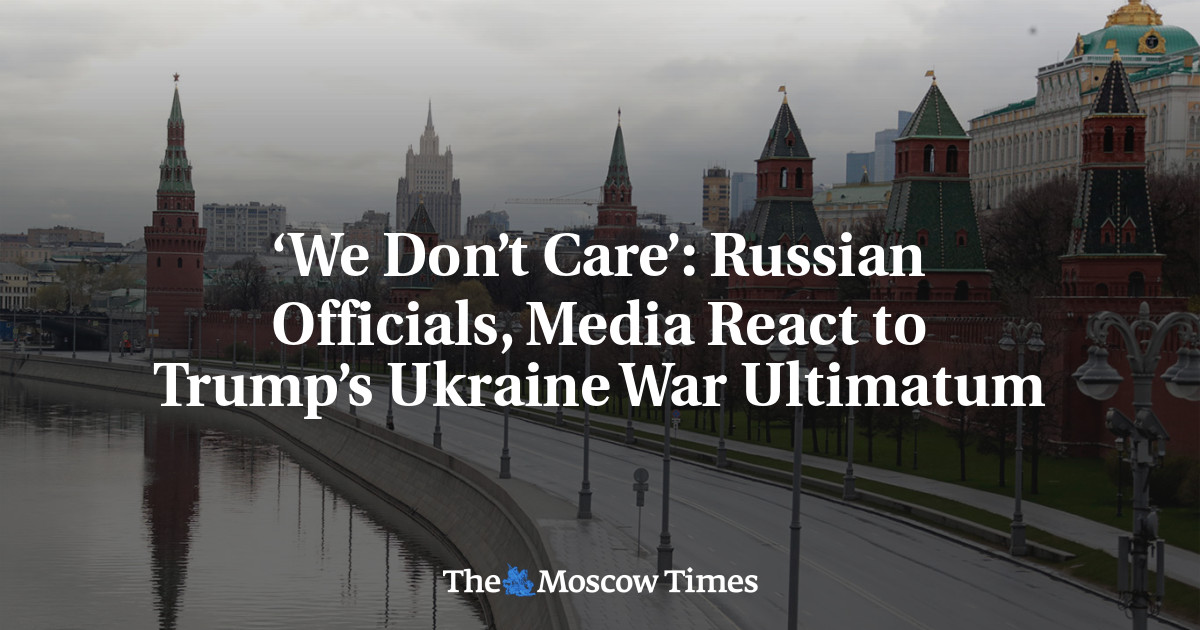Russia Responds to Trump's Sanction Threat Amid Ongoing Ukraine Conflict
2025-07-15T10:48:00Z

In a recent exchange of words between Washington and Moscow, Russian officials and state media appeared largely dismissive of former President Donald Trump's strong warning regarding economic sanctions against Russia. Trump issued this threat during a press conference held in the Oval Office on Monday, where he was accompanied by NATO Secretary General Mark Rutte. The U.S. President declared that if Russia does not conclude its ongoing military operations in Ukraine within a span of 50 days, the United States would impose "very severe tariffs" that could reach as high as 100%.
Expressing his frustration, Trump stated he was "very, very unhappy" with Russian President Vladimir Putin for not taking more decisive steps towards achieving peace in the conflict-ridden region. This pointed remark underscores the escalating tensions between the two countries, as both grapple with the ramifications of the prolonged war in Ukraine.
In response to Trump's statements, Kremlin spokesperson Dmitry Peskov addressed the media, indicating that the U.S. President's comments warranted serious consideration. Peskov noted, “We certainly need time to analyze what was said in Washington, and if and when President Putin deems it necessary, he will comment on it.” His carefully measured response suggests a strategic approach as Russia assesses the implications of Trump's ultimatum.
Furthermore, Peskov emphasized that the decisions made in Washington, along with those from NATO nations and Brussels, are not interpreted by Ukraine as an impetus for peace. Instead, they are perceived as encouragement to continue the ongoing conflict. He reiterated that Russia remains “ready” for peace talks, asserting their willingness to engage in diplomacy.
Additionally, Deputy Foreign Minister Sergei Ryabkov weighed in on the discussion, expressing that while Moscow prefers diplomatic solutions over confrontational tactics, they firmly reject any ultimatums or demands. Ryabkov's comments reflect a broader sentiment in Russian foreign policy, where maintaining sovereignty and respect in negotiations is paramount.
 Aaliyah Carter
Aaliyah Carter
Source of the news: The Moscow Times